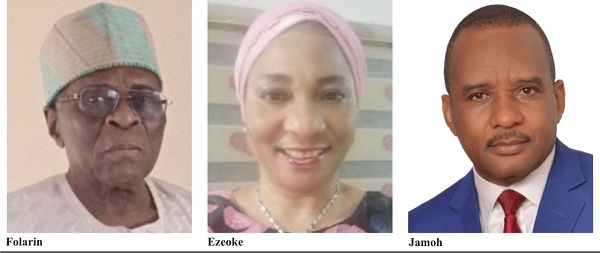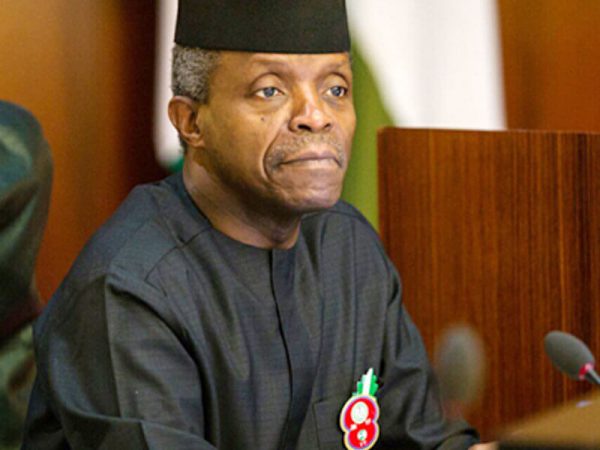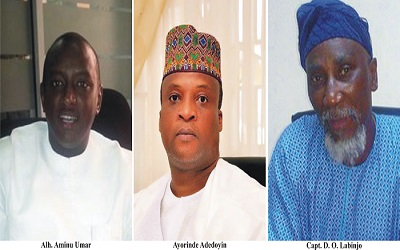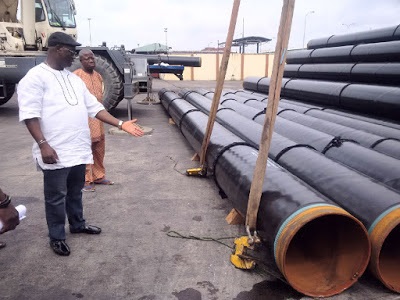Nigeria’s Economy and the Politics of Enchanted Interests
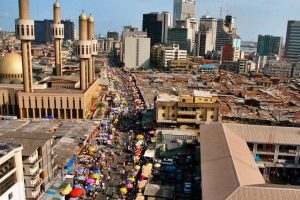 By Kenneth Jukpor
By Kenneth Jukpor
The myriad of challenges across the economic space in the Nigerian polity can be linked to the leadership shortcomings at various organizations or portfolios. This gives credence to Suzy Kassem’s statement that, “a nation’s greatness depends on its leader”.
Kassem, an American writer, poet, philosopher, and multi-faceted artist of Egyptian origin, has several philosophers sharing her point of view that choosing a good leader is a first step to vastly improve a nation’s economy.
In Nigeria, however, there is an ambiance of compromise, corruption and ultimately interests which birth the leaders. As a consequence, there is politics of enchanted interests which sways crucial policy formulation, subsequent implementation or lack off, zoning of pertinent national assets, infrastructure as well as appointments into various leadership positions that should have been reserved for technocrats.
Enchanted interests refers to the factors influencing critical decisions such as contract approvals, monopolies, concessions, arbitrary charges, among others, as a result individuals wheedling political, ethic, religious and financial powers on leaders at Ministries, Departments and Agencies (MDAs).
In the nation’s port sector, a quick look at the operational and regulatory structures could sway one into believing that all is well in the industry. There are regulators for the port environment, Nigerian Ports Authority (NPA), port economic regulation lies with Nigerian Shippers’ Council (NSC), Nigerian Maritime Administration and Safety Agency (NIMASA) has the onus of safety and shipping development, National Inland Waterways Authority (NIWA) attacks functions of inland waterways and river port structures. Despite this coherent arrangement, lots of challenges mar the smooth administration of the regulators as several political enchanters who own or have interest in the operators, place the leadership of the parastatals in a quagmire as they attempt to regulate businesses of their bosses.
How can one explain the unending fracas between the sponsors of the Secure Anchorage Contracts and top Naval backing versus the Minister of Transportation and NPA. The Minister of Transportation, Hon. Rotimi Amaechi has backed the NPA in its position that SAA is illegal and such service shouldn’t be paid for in the country; nevertheless, some top legislators, senior Navy officers and the private company, OMSL have fought the battle to a standstill.
The initial concession arrangement for seaport terminal operators emphasizes the role of a port economic regulator, why should the concession review take place without the port economic regulator, NSC? Conflicting interests among major influencers in the nation apparently sees government agencies pitch themselves against each other, when they should be collaborating.
If that isn’t bad enough in the politics of interests, when would competence and industry know-how play paramount role in the appointment of helmsmen for government parastatals instead of political party affiliation, ethnicity and other irrelevant variables?
This system shows why companies owned by top Nigerian politics evade the dangling hammer of regulators whilst other companies get chopped off so bad that they fold up? Why should terminal operators and shipping companies tactically evade regulatory directives for monetary gains, yet enjoy flawless empathy with the disregarded regulator?
Within the nation’s oil sector, any thorough assessment would reveal among other things, that the lead organization, Nigerian National Petroleum Corporation (NNPC) is one of the inefficient government institutions in the country. This is also a result of heavy political interference, ambiguities, corruption and nepotism that embodies and protects the interests of some persons.
Recent investigations and probes into government corruption in Nigeria reveal that a substantial part of government corruption originates from the activities that relate to the management of the oil and gas proceeds which should have been channeled towards the growth and development of the nation.
Despite being an oil rich country, Nigeria is the world headquarters of poverty, which explains further the poor management of the oil resources in the country. This mismanagement, however, is beneficial to some influential Nigerians or better put, “enchanters”.
Over the years, one of the biggest challenges to investments in Nigeria has been the propensity of the government to revoke agreements entered by previous administrations. These arbitrary revocations sometimes leave investors bankrupt and it is seen as one of the major impediments to Foreign Direct Investments (FDI) in the country.
When the Federal Government revoked the Lagos Trade Fair complex concession through the National Council on Privatization (NCP), it wasn’t just flouting the law that should thrive in a country practicing democratic system of governance, the concessionaire; Aulic Group was caught in a web of enchanted interests.
Shouldn’t the government and its agencies be front-runners in the bid to uphold and respect the law one may ask? Why don’t they respect legitimate agreements entered by their predecessors any several potential investors in Nigeria ask? The truth, however, is that this spontaneous revocation of Aulic’s legitimate concession agreement and many others who have suffered similar fate, wouldn’t have occurred if the concessionaire was a former head of state, ex-Military General or an individual with massive political clout in the country.
There is no reason the government shouldn’t deliver on the promises they made to concessionaires years after, let alone revoke the concession without any explanation. It should also boggle the mind that the government could renege on agreements carried out legitimately without explaining the reason for the revocation. Nevertheless, these atrocities are neatly carried out when certain interests of a minute few must be protected.
Port industry stakeholders and observers have been in awe at the empty container conundrum and consequent port access gridlock that has defied the executive orders from the presidency, frequent clamp downs of NPA, threats and engagements by NSC as well as the brutal force by the Presidential task team established to maintain order on the port access roads.
Although there are several factors associated with this problem, shipping companies and terminal operators remain nonchalant as the port corridor crisis guarantees them more profits as demurrage and additional storage charges.
Lack of empty container holding bays by shipping companies isn’t the norm in other countries where the same shipping coys also operate; but these companies find it appropriate to do things the Nigerian way because the system encourages such, and the companies make more revenue.
The idea of designating Onne, Warri and Calabar Ports as terminals for oil and gas cargo exclusively assigned to the Integrated Logistics Systems Limited (Intels) was an aberration created by the NPA to give undue advantage to the company and satisfy INTELS as well as the pecuniary gains of some NPA management staff.
Even though this problem has been corrected by the current leadership of NPA, the initial concession agreement was signed in 2006 didn’t accord INTELS exclusivity to cargoes; in 2008 Intels owned by former Vice President of Nigeria, Abubakar Atiku, started flying a letter claimed to have been written and signed by a former Director of Transport at the Bureau of Public Enterprise (BPE) claiming exclusivity.
The monopoly occasioned by specialized ports in Nigeria until 2016 robbed Nigeria of valuable Foreign Direct Investments (FDIs) as International Oil Companies (IOCs) which should have opened exploration outfits in the country, opted against such investments.
IOCs baulked at the high cost of handling oil and gas cargoes at the specialized terminals with Intels enjoying the fiscal gains as the monopolistic company benefiting from the lopsided policy.
The problem of enchanted interests can also be found in Nigerian financial sector, perpetuated by commercial banks; it has also affected insurance, agriculture, manufacturing, communication and several other industries in the nation.
To address this quandary of enchanted interests, leaders across various agencies would have to adopt another Suzy Kassem’s axiom to “stand up for what is right, regardless of who is committing the wrong.”
A good leader must serve the best interests of the people first and not those of multinationals or egoistic politicians.



